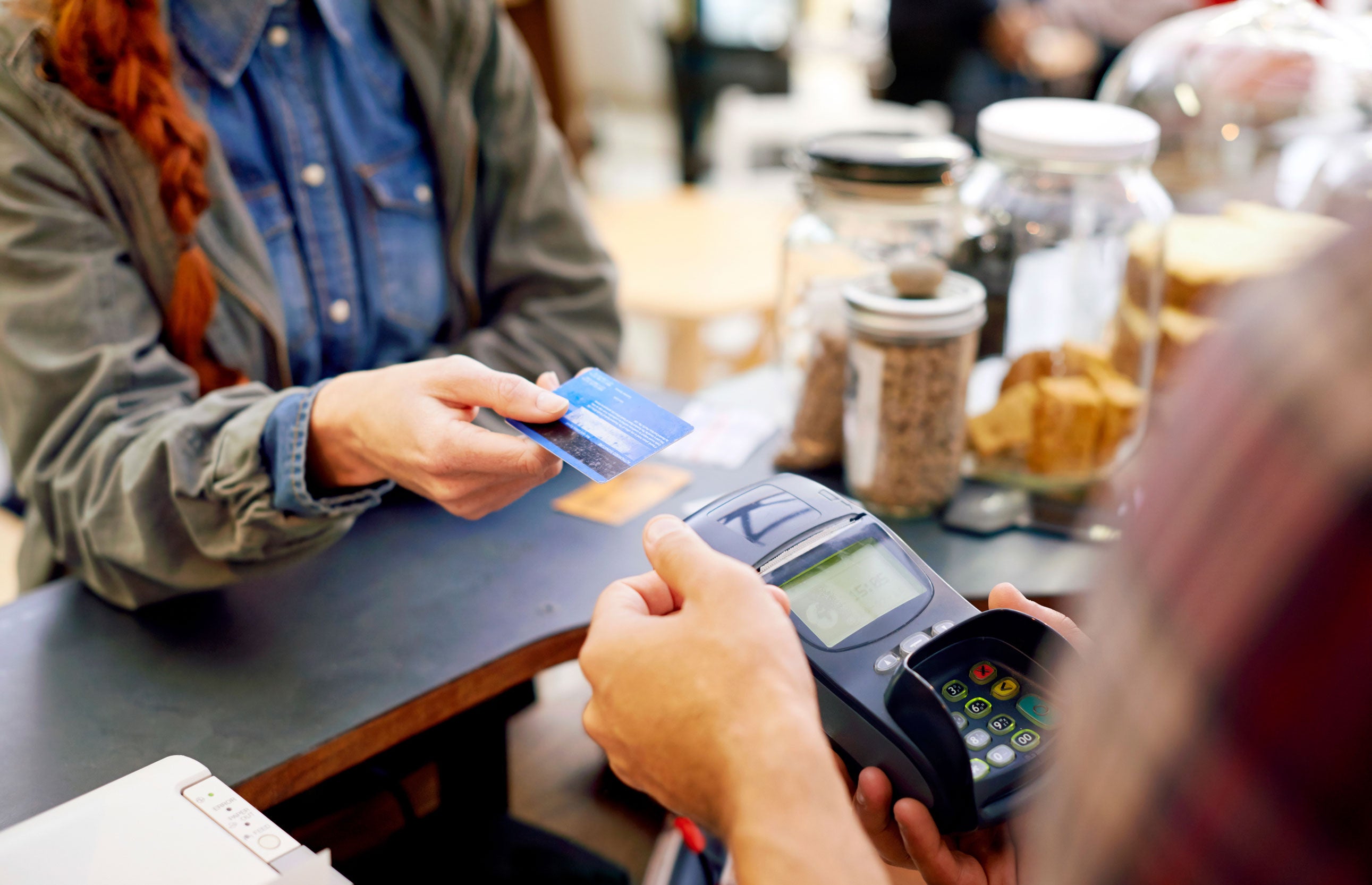
What is a prepaid debit card? These cards are similar to standard debit cards, with a few exceptions. Just like standard debit cards, you can use prepaid cards to make in-person purchases at most locations that take Visa or Mastercard. In many cases, you can even use these cards to make online purchases.
Instead of depositing money into an account at your local bank, you load money directly onto a prepaid debit card. Some cards also let you set up a direct deposit so you can have the funds from your paycheck directly loaded onto your card.
You can only spend up to the amount of money you have on your card. This may help prevent hefty overdraft fees that some banks and credit unions charge. However, most prepaid debit cards charge other fees, such as monthly maintenance and transaction fees.
Why Would You Want a Prepaid Debit Card?
There are many reasons you might want to consider purchasing a prepaid debit card. For starters, prepaid cards are often more convenient and safer than carrying cash around. These cards can be a good option for those having trouble getting a standard bank account or facing excessive overdraft fees.
Because prepaid debit cards only allow you to spend the value on your card, they can help you curb your spending and gain better control of your finances. It’s important to note that prepaid debit cards don’t help build your credit. They also don’t accrue interest no matter what your balance is.
How Can You Get a Prepaid Debit Card?
Prepaid debit cards are fairly easy to obtain. Many major retailers, such as Walmart and Target, sell these cards. Prepaid cards are also available through some banks and credit card companies. You may be required to provide proof of identification and incur a one-time activation fee.
When choosing a prepaid debit card, be sure to compare your options. Most prepaid cards charge a variety of fees, such as monthly maintenance and transaction fees. Be sure you understand all the costs involved when choosing the right prepaid debit card.
You also want to compare added features. For instance, if you want a prepaid card that allows you to have your paycheck directly deposited onto your card, make sure it offers this feature before purchasing it. Other features you may want to consider are the ability to link your bank account to your debit card so you can transfer money quickly or the ability to give a family member access to your account.
How Do Prepaid Debit Cards Work?
Using a prepaid debit card is pretty simple. Once you purchase the card, follow the activation steps before using it—keep in mind that you may incur a one-time activation fee. If you didn’t load money at the time of purchase, you must do so before using it.
Most prepaid cards allow you to add money by phone, online, or in person at the location you purchased the card. Depending on the type of prepaid card you purchase, you may also be able to set up a direct deposit to have your payroll check load directly on your card.
Once you have money on your card, you can make purchases at most locations that accept Visa or Mastercard, such as retail stores, restaurants, and grocery stores. You can also use ATMs to withdraw cash.
Additionally, you can use your card to pay bills or shop online. However, some cards require you to register your card before making online purchases. To register your card, you just need to follow the instructions that came with it.
Keep in mind that your purchases can’t exceed the balance on your card. For instance, if you try to purchase an item for $300 but only have $275 on your card, the transaction will be denied. The good news is that you won’t face any overdraft fees, and you can’t spend more money than you have available.
Pros and Cons of Prepaid Debit Cards
Before you purchase a prepaid debit card, it’s important to consider the advantages and disadvantages of using this card.
Pros of Prepaid Debit Cards
Reloadable prepaid debit cards have several great benefits, including:
- Having an easy approval process that doesn’t require good credit
- Serving as a convenient and safe alternative to carrying cash
- Preventing overdraft fees
- Keeping you from overspending so you can develop good spending habits
- Being accepted at most places that accept Visa or Mastercard, including in-store and online purchases
- Withdrawing cash from ATMs
Cons of Prepaid Debit Cards
These cards also have numerous disadvantages that you should be cautious of, including:
- Numerous fees, including activation, monthly maintenance, transaction, and ATM fees
- Not helping repair or build your credit
- Not accruing interest no matter what your balance
- Having the possibility of transaction and balance limits
- Not being accepted by many hotels and car rental companies
Before purchasing a prepaid debit card, it’s important to understand its fees and limitations. Be sure to read the fine print so you understand exactly what fees you might incur while using the card. Additionally, read through the policies to see if the card includes any deposit, withdrawal, or balance limitations that may hinder your ability to use and save funds.
Because prepaid debit cards don’t help you build credit, you may want to consider applying for a credit card instead. Start by checking your Free Credit Score to see if you might qualify for a credit-building credit card.
If your credit score is too low to qualify for a credit card, a prepaid debit card may be a good solution while you work on rebuilding your credit. Credit.com’s Extra Credit® subscription has tools that can help you take steps to build your credit and track your success.
You Might Also Like
April 20, 2023
Credit Card Alternatives
May 28, 2018
Credit Card Alternatives
August 7, 2016
Credit Card Alternatives





